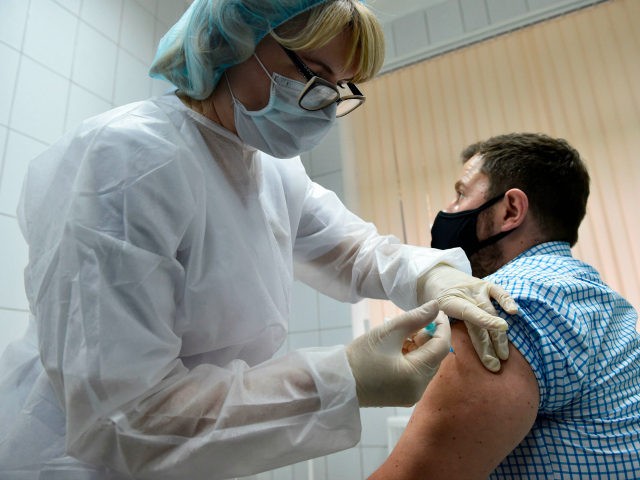The Lancet medical journal requested “clarification” on Thursday from the authors of a Russian coronavirus vaccine study after independent scientists noted “inconsistencies” in their research, Agence France-Presse (AFP) reported on Friday.
Russia announced on August 11 that it had successfully developed a coronavirus vaccine.
“As far as I know, this morning for the first time in the world a vaccine against the novel coronavirus infection was registered,” Russian President Vladimir Putin said.
The alleged vaccine, dubbed Sputnik V, was developed by the Russian Healthcare Ministry’s Gamaleya National Research Center for Epidemiology and Microbiology.
Though the vaccine candidate had yet to clear Phase Three clinical trials, the Kremlin claimed it had already been approved for civilian use. As a result, Western scientists have viewed Russia’s supposed coronavirus vaccine with skepticism, and many experts doubt its alleged safety.
Last week, Russian researchers published their trial findings on the vaccine in the peer-reviewed Lancet medical journal, claiming that Sputnik V was “proven to be ‘safe and well-tolerated’ among a few dozen volunteers,” according to AFP.
Dozens of independent researchers who read the trial findings have cast doubt on them. More than 30 Europe-based experts signed an open letter this week publicly voicing their suspicion about the vaccine study, specifically noting “potential data inconsistencies.”
According to AFP, “The researchers identified what they said appeared to be a number of duplications in figures presented and concluded that the data within the study was ‘highly unlikely’ to be correct.”
The lead author of the Sputnik V study responded to the open letter on Thursday saying he “rejected” its claims, according to Russian news agency RIA Novosti.
A spokeswoman for The Lancet told AFP this week that the medical journal was aware of the open letter. “We have shared the letter directly with the [study’s] authors and encouraged them to engage in the scientific discussion,” she said.

COMMENTS
Please let us know if you're having issues with commenting.